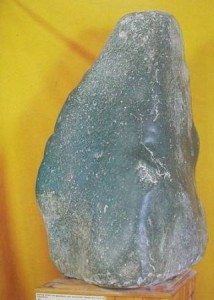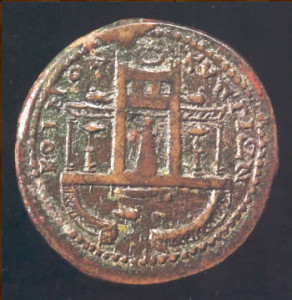Within the past couple of weeks I have had some interesting conversations with other Pagans about the origin of Aphrodite, her “nature” and the history of her worship. The fact is, there is no one definitive story, no starting point and no single correct path. There are many ways of working with and understanding a deity and the choices we make in doing so, as with any relationship, will affect our outcomes. In the next couple of posts I will discuss how it is that I conceive of what I am calling the Aphrodite web, which encompasses the ideas, epithets, aesthetics, theories and practices which have been associated with her through history, and which to me seem most coherent. I am fully aware that this way of working will not appeal to many, and that’s fine.
Initially I had called it the Aphrodite “current”, as do many people when discussing the deities they work with, but in chatting with a friend about this, he suggested that current might not be the most useful term, and I agreed with him. As he noted, current is a rather antiquated electrical metaphor in the spiritual world, and it suggests a rather essentialized, linear, expression of deity. “Current” also has, for many, connotation of the transmission of initiatory wisdom, and that is not what I am talking about here either. When I envision all of the varying aspects that make up Aphrodite as I see her, they look like a web; seemingly disparate concepts through space and time which are held together by filaments of interpretation, revelation, context and understanding. It’s really about spiritual expressions of a semantic space.
BUT, having said all that, I still have standards. There is material that I think fits in the web, and material that I feel does not. And while I don’t think it is useful to be slavish to literary depictions and cult material, I will tend to look somewhat askance at interpretations that are just not historically correct. If they work for people, that’s just fine, but don’t confuse UPG with history, and don’t pass it on as fact. For me, to make my Aphrodite work viable, I want to approach my deity activities with a very great deal of clarity about my perceptions of all of the varying interconnected notions that Aphrodite represents. While I do not believe in one “authentic” or essential Aphrodite (there certainly wasn’t to her devotees across space and time) there is also a huge category of “not Aphrodite”.
Let’s take for example the question of Aphrodite’s origins. Many people focus on the idea that Aphrodite developed out of the Inanna/Ishtar/Astarte Near Eastern/Semitic complex, and I believe this is both helpful in understanding her, and also potentially unhelpful. Obviously we can see Astarte and Ishtar as precursors to Aphrodite, but as Aphrodite develops, her character and cult becomes very different than that of the other Goddesses. They all held sway over the same domains, sex, fertility and war, but Aphrodite’s relationship to these attributions shifts, especially her relationship to fertility and war. Aphrodite retains a fertility element because of her relationship to sex and love but she is not a maternal figure and as previously noted, her relationship to war is most likely not martial, but related to arousing passion and the meeting of bodies. Also, Aphrodite is elementally closely linked to water and the horizon, whereas Inanna, Ishtar and Astarte have a much more distinctively chthonic character which I feel is key to their own stories. What we do see as a leftover characteristic from her possibly previous incarnation is that exoticism seems to be part of her character. She emerges from over the water fully grown, and her status as the beauty from abroad gives her a certain power. Although it was most likely well understood by Aphrodite’s earliest cult followers that she was an imported Goddess related to these others, she changed, and her relationship to the people changed accordingly. There are other deities that do make it into the web for me, though, especially if I feel that they develop an idea or area where I want to work a bit more intensely. This does not mean that I seem them as the same, just usefully connected.
Within Paganism many people try to follow some sort of train of origin to get back to “the original Goddess” so that they can somehow understand her better. However, this need for embracing Aphrodite’s “authentic” beginnings distracts from the truly dynamic, multifaceted and multi sited way in which Aphrodite, or frankly any very old deity works. And a quest for origins ultimately colors the interpretative lens that we use when looking at the various ways in which a deity resonates with people throughout history.
The choices we make about the frameworks we use when discussing the nature of deity will ultimately affect the trajectory of our own development. Although that seems really simplistic, a lot of folks don’t take their own willed action into account when discussing deity work. It’s a conversation, remember? The bottom line is, if a paradigm of deity work is going to push me further away from my union with that deity, I won’t choose it. I don’t think the ancients were more authentically spiritual or more close to the source of the divine than we moderns are. They might have developed some cool techniques and thought things out well, given that they had more time on their hands, fewer diversions, and religious activity was frequently at the center of their culture, but they were inherently no closer to the Gods than we are. When we privilege their experience over ours, we are essentially aspiring to their spiritual grasping.
The thing is, most of what many interested parties today know of “the ancients” is through heavy, heavy mediation. We aren’t seeing the past through the eyes of the people who lived it, we are seeing it through the people who wrote about it, translated it, and in many (most) cases imposed their own worldview, bias, and ethics. So in general I am skeptical about ideas of ritual and interpretive “authenticity” when dealing with deity, and mostly that has to do with the motivations that make people want to try to get back to some sort of mythic golden age of closer to the Gods, somewhere not where we are right now. I’m just not in favor of anything that keeps us at arm’s length from being our most awesome empowered selves, and I believe a lot of those authenticity projects serve us badly.
Next time I will start to tackle the ideas, figures, and historical periods I find most interesting and useful in my own work contemplating Aphrodite.

